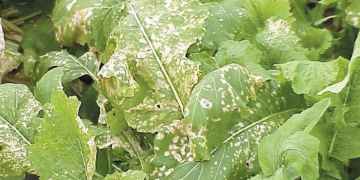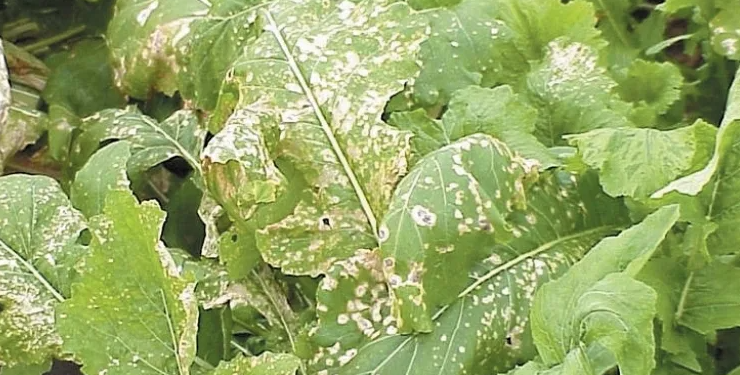#AlternariaCombat, #LeafSpotDisease, #BrassicaCrops, #Fungicides, #BiologicalControlAgents, #GeneticResistance, #CropYields, #PlantPathogens, #MultiFacetedApproach.
Alternaria brassicicola is a fungal pathogen that causes leaf spot disease in brassica crops, such as cabbage, broccoli, and cauliflower. This disease can cause significant damage to the leaves, resulting in reduced crop yields and quality. As a result, farmers are constantly seeking new and effective strategies to combat this pathogen and protect their crops.
One approach to fighting Alternaria brassicicola is through the use of fungicides. However, the overuse of these chemicals can lead to the development of resistant strains of the fungus, as well as negative impacts on the environment and human health. Therefore, researchers are exploring alternative methods to control the spread of the pathogen.
One such approach is through the use of biological control agents, such as beneficial microbes and natural compounds found in plants. These agents can help to suppress the growth of Alternaria brassicicola while minimizing negative impacts on the environment.
Another strategy being developed is the use of genetic resistance in plants. By breeding and selecting brassica crops that are naturally resistant to leaf spot disease, farmers can reduce the need for chemical treatments and increase their crop yields.
Ultimately, the development of effective strategies to combat Alternaria brassicicola and other plant pathogens will require a multi-faceted approach that involves both traditional and innovative methods. By working together, farmers, researchers, and policymakers can help to protect the health of our crops, our environment, and our communities.































